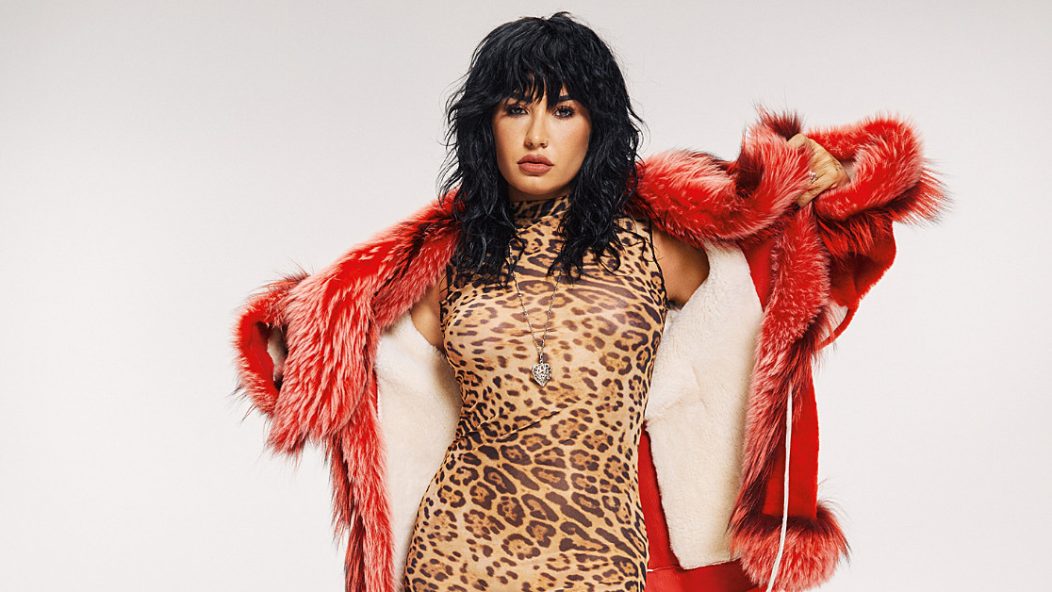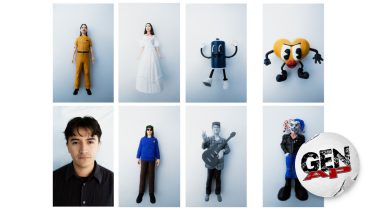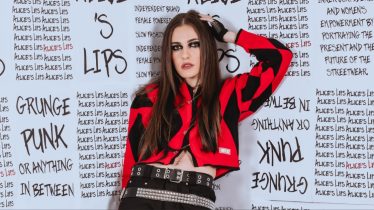
Every Demi Lovato album ranked
Not many artists have had a musical career like Demi Lovato. Their discography begins with Don’t Forget, first released by the Disney-associated label Hollywood Records when Lovato was a squeaky-clean kid. Now, with the release HOLY FVCK, it’s an album that, at first glance, one would assume is the polar opposite of their debut. Therein lies the beauty of Lovato’s discography: You never quite know where they are headed next.
Across eight albums, Lovato has touched on pop, punk, R&B and everything in between — and has done so pretty seamlessly and flawlessly. Lyrically, they’ve continued to dive into the depths of their own psyche; exploring the loss of their father, toxic and abusive relationships and the beauty of embracing one’s spirit, even when on their deathbed.
Read more: Demi Lovato’s hard-won journey back to their rock roots
Albums like Don’t Forget and Here We Go Again were overlooked given the Disney slant, and their latest record may have been swept up in a slew of new music releases, but Lovato’s discography is as solid and unique as they come.
Now, we’re unpacking and ranking all of Lovato’s eight records that, much like them, have their fair share of highs and lows.
8. Confident (2015)
Like Unbroken, Confident is a kaleidoscope of genres and speaks directly to the album title. Bringing together pop and dance with sonic touches of R&B, EDM and soul, Lovato’s Confident is sonically coherent and has songs like “Cool for the Summer,” which further demonstrate her vocal capability. The overall issue with Confident rests on the album as a whole; too similar to its predecessor Demi in terms of lyrical depth and lacks the sonic growth shown by her previous four records.
Despite that, there are major discography-defining moments on Confident. Like with “Skyscraper,” the song “Stone Cold” is a “heartbreak” power-pop ballad with twinges of soul influences that showcases the ease with which Lovato reaches the highest of notes blended with a stripped-down production and piano melody. It’s a song that is Demi Lovato at their very best.
7. Dancing with the Devil… the Art of Starting Over (2021)
Although a pop album at its core, Dancing with the Devil… the Art of Starting Over is Lovato’s darkest record in her entire discography — born from Lovato’s bleakest and brightest moments. The piano-driven record is entirely confessional with songs like “California Sober” and “What Other People Say” being standouts, with the latter giving slight lyrical and thematic nods to “La La Land” and “FREAK.”
Lovato falls into the same trap that other artists have as of late by crafting an overly long album. Dancing with the Devil… the Art of Starting Over contains 19 songs and, if cut down to 10 to 12 tracks, would be a cohesive record. Songs like “Intro” are clunkily placed fourth on the tracklist rather than first, and high-tempo tracks like “My Girlfriends Are My Boyfriend” are carelessly flickered throughout songs that are deeply intimate and truthful to Lovato’s journey.
6. Tell Me You Love Me (2017)
Taking what they learned from Confident, Lovato wholeheartedly embraces R&B-infused pop on Tell Me You Love Me. Serving as a snapshot of their artistry at that moment in time, Tell Me You Love Me contains a sharp, modern sound with hip-hop rhythms woven throughout the electronic production that is the single throughline to the entire record.
The obvious standout is “Sorry Not Sorry,” a take-no-prisoners, unapologetic track that is the embodiment of Lovato giving the middle finger to any naysayers, and songs like “Ruin The Friendship” as a cheeky, sensual ode to blurring the lines. Overall, Tell Me You Love Me is a cohesive pop record but lacks providing something unique to the listener that they haven’t already heard on her previous LPs.
5. Unbroken (2011)
Unbroken is an album that, for once, showcases Lovato at their best: mature, introspective lyrics paired with their sky-soaring vocals. Where Don’t Forget and Here We Go Again were coming-of-age records, Unbroken is drenched in Lovato’s struggles as a 20-something adult breaking free of their Disney roots.
For the first time in their discography, Lovato explored new genres while recording Unbroken, touching on sounds from R&B, dance-pop and even doo-wop-inspired ballads. Some may think it’s overplayed, but as a whole, “Skyscraper” and its themes of staying strong through a low point make it a standout on the album. Not many artists would include a breathy take as a final vocal, but “Skyscraper” shows that Lovato isn’t just any artist — they understand that unique rawness in both their art and personal life is what sets them apart from others in their industry.
4. Demi (2013)
On Demi, Lovato touches on the sickly sweet pop from her Disney channel days, using elements of synth-pop and bubblegum pop throughout the tracks. “Warrior” serves as the final track to the record and summarizes the album as a whole: Despite being knocked down time and time again from personal struggles and professional struggles, Lovato continuously rises from the ashes.
On what might be Lovato’s most pop-focused album, singles like “Heart Attack” and “Really Don’t Care,” featuring British artist Cher Lloyd, demonstrate Lovato’s knack for writing powerful pop radio hits. Where Lovato’s songwriting and vocal ability are showcased best is on her ballads which, on Demi, lacked the power and angst as heard on songs like “Feed” on HOLY FVCK and “Catch Me” on Here We Go Again.
3. HOLY FVCK (2022)
Where Here We Go Again picks at teenage angst through the pop-rock genre and was swiftly discarded for the next record, HOLY FVCK wholeheartedly embraces the genre fans have been itching for Lovato to turn back to. HOLY FVCK is an ode to examining one’s coming-of-age story by zeroing in and tearing it to shreds throughout the pop-punk and hard-rock tracks.
As a whole, HOLY FVCK is an ode to where Lovato is, what they’ve gone through and where they are headed. The standout is “29,” a track that is a therapy session in song form as she processes a relationship with an inappropriate age gap. Like with Don’t Forget’s “La La Land,” the album’s opener “FREAK” blends together glam and hardcore rock and focuses on Lovato’s experience as being a sideshow in her own life as the media speculates over her trauma and drama.
2. Don’t Forget (2008)
Back in 2008, all Disney channel kids were releasing sickly sweet pop albums that more or less sounded the same. It’s why Lovato’s debut record, Don’t Forget, was a breath of fresh air to what their counterparts were releasing. Bringing together power pop-rock sounds, Don’t Forget was conceptually sharp; there are no songs that sound out of place or feel overtly mature for the then-16-year-old.
As they began to enter the Disney hysteria, Lovato grappled with the pressure of not changing in the song aptly titled “La La Land,” where songs like “Believe in Me” focus on Lovato’s internal struggle with beauty standards and accepting oneself. At just 16, Don’t Forget is a record that showed profound promise for what would eventually become Lovato’s genre-bending music career.
1. Here We Go Again (2009)
There was no sophomore slump for Lovato. Here We Go Again was her first true foray into pop-rock, the catalyst of pulling from then-influences — Paramore, We The Kings and the like. The album has similar themes to its predecessor, consisting of themes around coming-of-age and teenage angst, but Lovato explores heavier themes than their debut.
In particular, songs like “World of Chances,” co-written by John Mayer, explores a tumultuous relationship, and the title track details an on-off relationship with someone who is refusing to commit. As a whole, Here We Go Again set the sonic stage for what would eventually become HOLY FVCK more than two decades later.









